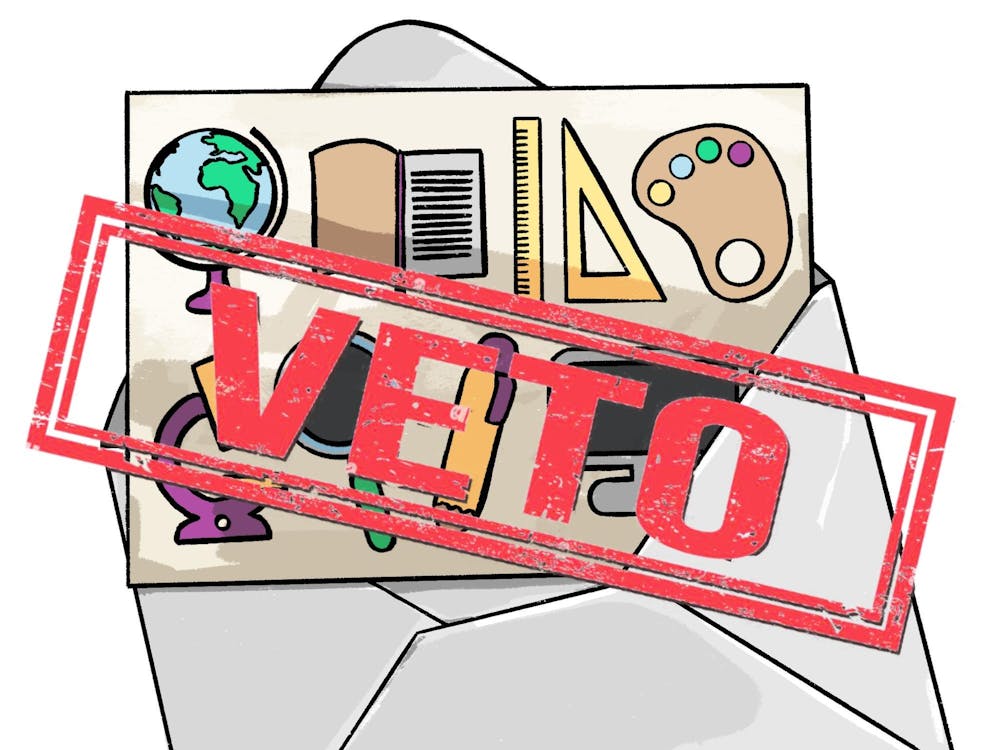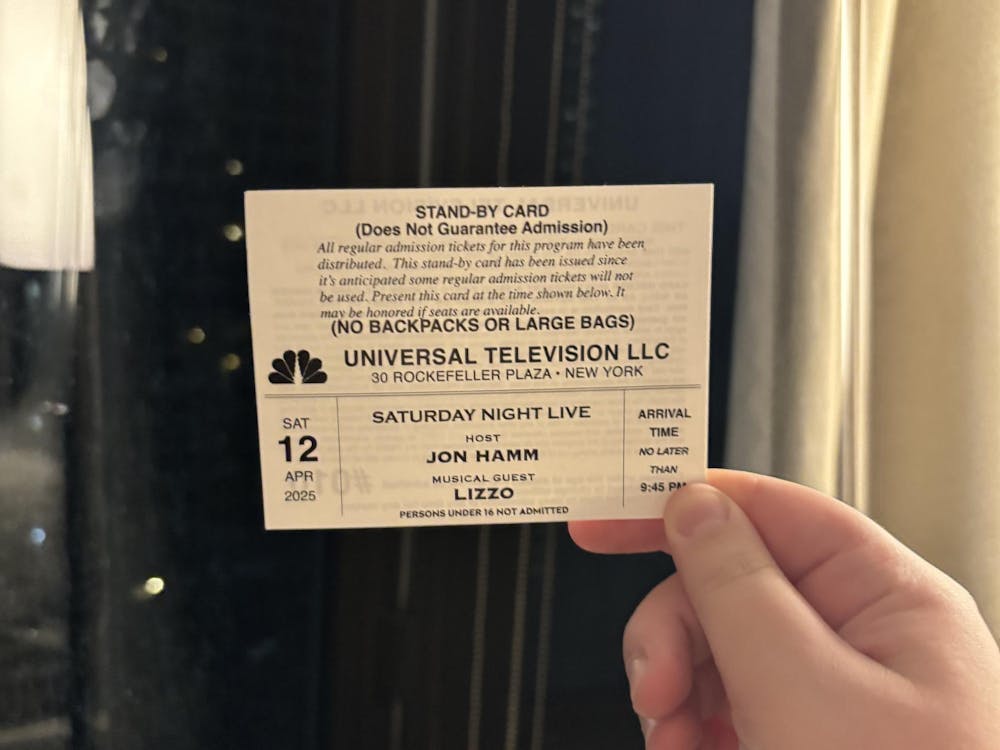A few days before we left for break, Miami University's Symphony Orchestra put on "The Two Titans," a powerful concert presenting both Beethoven's Piano Concerto No. 1 and Mahler's Symphony No. 1, "Titan." As I looked around me in Hall Auditorium during that concert, I saw hundreds concentrating on Beethoven's abrupt harmonic shifts and Mahler's magnificent symphonic form. Not everyone was enraptured -- in fact, I spotted several slumped heads sleeping through the heavenly performance.
But on the whole, the audience seemed alert to the shifts in the music, attentive to the impressive concentration of the many up on the stage and appreciative of the clear, sonorous sounds Miami's Symphony Orchestra was producing.
In other words, the concert required engagement of its listeners. Listening to it, no matter one's exposure to classical music (with the exception of those sleepyheads), was an experience of emotional and perhaps even technical education. Today, this kind of engagement with music is on the decline. It is prevented by "shuffle" functions and disregarded by many people as "time consuming."
These observations got me wondering: In an age dominated by iTunes and Spotify, can one-at-a-time streamed songs suck in and enthrall listeners as deafening concerts, live symphonies and vinyl jam sessions once did? Can today's most popular music move us to tears and point us to truths about human life?
Spoiler alert: the answer to both questions, of course, is yes. Yet undeniably, modern music, the means with which it is listened and the extent to which it moves listeners are qualitatively different than they were in years past. Most important, I fear that listeners turn to music today only as a pastime, not as a path to greater understanding of oneself and humanity -- a potential source of emotional education.
In "Love Actually," the love-it-or-hate-it rom-com classic, there's a scene in which Joni Mitchell's magnificent music guts you as a viewer. Come time to open Christmas presents, Karen (Emma Thompson) opens a present from Harry (Alan Rickman) and reveals a Joni Mitchell box set instead of a necklace purchased by Harry, confirming for Karen that he's cheating. After opening it, Harry tells Karen, "To continue your emotional education." Engaging with music in such a way allows for, as Beethoven said, it to be a "higher revelation than all wisdom and philosophy."
This explicit engagement with music as a means for education, here dramatized in a fictitious affair, is in danger of disappearing.
Beethoven, Mahler and Joni Mitchell, however, are certainly not the only artists to entreat their patrons to an extended, through-the-ears sensual and emotional education. Many kinds of music demand deep thought post-jam deliberation from their listeners.
Making the drive from Cincinnati to Cleveland a few days into spring break, I listened to several old albums: Pink Floyd's "Wish You Were Here" and "The Final Cut," The Doors' "L.A. Woman" and Led Zeppelin's "Led Zeppelin VI," among others. Listening to these albums, start to finish and in order, cleared up certain themes and communicated them to me, the listener, in a way that can't be done by picking one or two songs out of these albums and throwing them into loose playlists like "1980s Smash Hits."
Newer artists, too, face this barrier to deep listening. Indeed, the Alabama Shakes, Childish Gambino/Donald Glover and Florence + the Machine -- only a small selection of today's top artists -- tackle timeless topics like love and identity, yet their popularity ensures that particular songs will overshadow others. (This, of course, is not a new phenomenon, but the record once ensured that listeners had to grapple with the unpopular or unrecognized songs in an album). Furthermore, the modern music industry incentivizes the production of "smash hit" singles, many of which are divorced from deep themes and produced as money makers.
Medium aside, there's a more important difference between today's and yesterday's.
bruggej2@miamioh.edu



